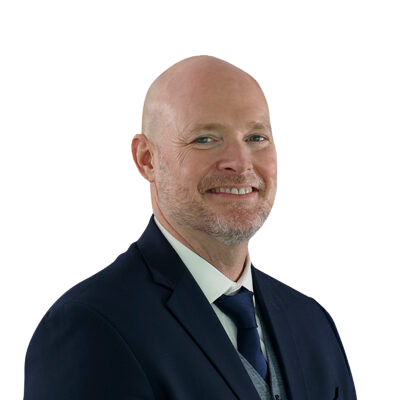Healthcare Information Exchange and the preventive healthcare in Abu Dhabi
By Robert Denson, Acting Chief Executive Officer
January 2023

The broad goal of the UAE’s ambitious Centennial 2071 project is “for future generations to live a happier life in a better environment, with bigger opportunities and stronger communication with the world,” according to the UAE President His Highness Sheikh Mohammad Bin Zayed Al Nahyan.
This blueprint for the future is based on four pillars: education, economy, government development and community cohesion. But in support of the plans to make the UAE the best country in the world by 2071, healthcare has a crucial role to play. The nation’s leadership understands that a happy and cohesive society cannot be achieved without a healthy population, with access to the highest standards of healthcare in the world. And that means preventive healthcare, rather than curative.
In Abu Dhabi, the Department of Health (DoH) is already working towards this vision of providing world-class healthcare, including the Abu Dhabi Health Information Exchange (HIE) Platform launched in 2019.
The platform is a key component of the digital transformation of Abu Dhabi’s healthcare system and the region’s first HIE platform, safely and securely connecting public and private healthcare providers across the Emirate. It enables real-time exchange of patient health information between healthcare providers, creating a centralised database of unified patient records to ultimately improve healthcare quality and patient outcomes.
Connecting public and private healthcare providers via a digital patient information exchange system avoids the issues associated with healthcare silos – where one healthcare practitioner might not easily have access to a holistic view of a patient’s health. The practice of medicine without complete patient information may lead to poor patient outcomes and higher costs. An HIE delivers the full picture rapidly and enables better-coordinated care programmes, and the chance to deliver preventive healthcare, rather than curative.
On top of creating a world-leading HIE system, Abu Dhabi is rapidly establishing itself as a leading healthcare hub, leveraging science, innovation, digitalisation and medical tourism.
Today, the Emirate prides itself on providing the latest innovative healthcare treatments to preserve and enhance the health and safety of its residents. Unlike other countries, the UAE has a strong sense of public- private partnership, backed by government-led funding and a strong desire to implement world-leading health services, both in the private and public sector.
This has been underpinned by strategic agreements signed between the DoH and major global pharmaceutical firms. They are harnessing all the capabilities and resources available to provide integrated health services, promote healthy lifestyles, and build a healthier, happier community.
Globally, we are witnessing a shift from curative to preventive healthcare. The World Health Organisation reports that the cost of physical inactivity will reach over US$300 billion in ten years if governments do not take urgent action to encourage more activity among their populations. But WHO data suggests progress is slow and nations need to accelerate implementation of preventative healthcare policies.
Another solid reason for the move towards preventive healthcare is that chronic disease is on the rise internationally. Patients with chronic conditions are also the most frequent healthcare system users, with possibly the most complex or uncertain needs.
According to a World Economic Forum study, global economic impact of the five leading chronic diseases - cancer, diabetes, mental illness, heart disease, and respiratory disease - could reach $47 trillion over the next 20 years. That figure can clearly be reduced by action today towards preventive healthcare.
As we know, in the UAE diabetes has reached pandemic status. The International Diabetes Federation states that the long-term care necessary for diabetes patients costs the UAE almost AED7.3bn annually, with a minimum expected cost of AED20.2bn once undiagnosed numbers start requiring treatment for complications. Expenditure on diabetes in the last ten years has increased by nearly 20% and will continue to rise – without increased preventive healthcare measures.
And this is where the development and implementation of Health Information Exchanges (HIE) present obvious benefits as they enable better and more consistent management of chronic illness and delivery of precision medicine. For instance, some HIEs include patient risk profiles built from predictive models that utilise Ai and machine learning. This predicts the risk of a patient developing specific chronic conditions, based on medical data collected from across healthcare facilities. The risk profile feature aids decision-making regarding treatment, medication and advice specific to a patient’s profile, proactively and preventively addressing the issues before they occur.
When HIEs are used to their full potential, they significantly transform healthcare. Clinicians are better informed, enabling them to make safer, more efficient decisions, while healthcare providers and governments are better prepared for major community health challenges Patients are empowered with access to their medical information to manage their healthcare proactively. HIEs are a key enabler in the growing move towards preventive healthcare – driven by holistic access to patient records – but the onus is on the entire healthcare system to drive synergies, encourage adoption and engagement, and optimise these game-changing, innovative solutions.
Abu Dhabi will continue to deliver bleeding-edge healthcare solutions, as the backbone of the UAE’s drive to reach its noble ambitions.
This article was published on Al Arabiya news and can be found here.